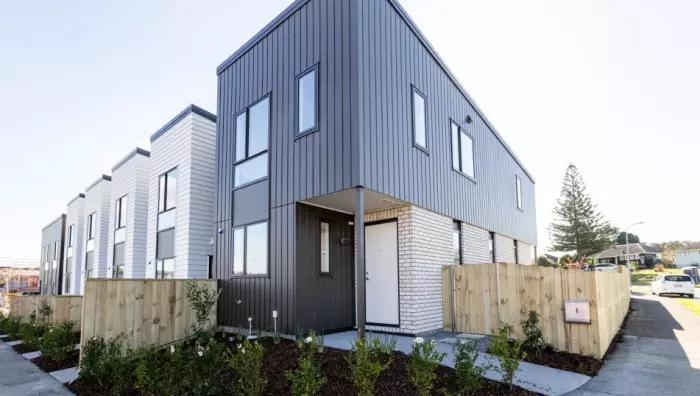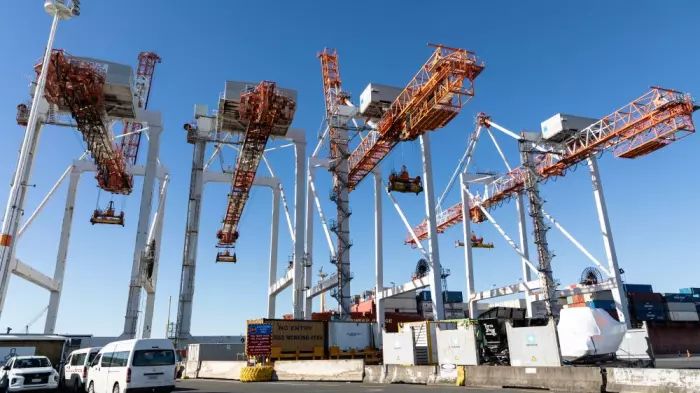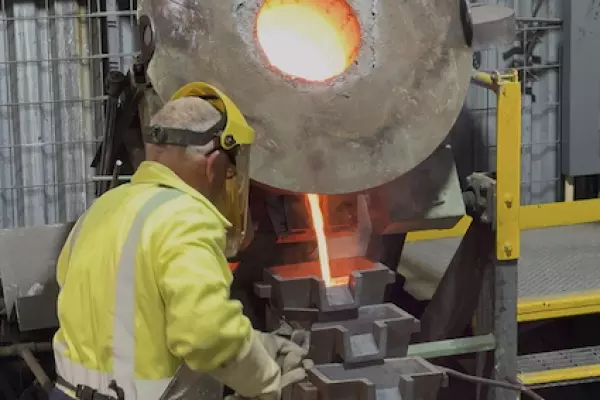Fletcher Building’s reconfirmation of its $855 million 2023 earnings guidance wasn’t quite enough to satisfy shareholders.
They wanted to know why Fletcher’s positive performance wasn’t being reflected in the share price.
Chief executive Ross Taylor told shareholders at Fletcher’s annual meeting this morning that the company expects earnings before interest and tax (Ebit) to be $855 million – or higher – in 2023.
This is despite the challenges both the company and industry are facing, and the expectation that Fletcher’s group earnings and cash flows will be weighted to the second half of the financial year.
Chair Bruce Hassall said Fletcher Building had delivered a “strong” set of financial results in the full year ended June but admitted it had also been a “difficult time” for many in the industry.
The company lifted its annual net profit to $432m or 42% in the year ended June.
The company’s Ebit before significant items came to $756m – a jump from the company’s $750m guidance.
Only one shareholder wanted to know if Fletcher’s gib market had been damaged over the product shortage in July, which put the company in the building industry's firing line.
Hassall said the shortage of plasterboard sent demand soaring by 200% which, coupled with supply chain struggles, had made it too hard to supply enough gib for the market’s needs.
However, supply was starting to normalise and settle down to similar levels as other building products.
“The lessons regarding the supply challenges over the last two years have been learned,” he said. “It was challenging but we’re coming out the other side and don’t believe there’ll be any long-term damage.”
Solid to soft
Taylor said house sales volumes have been mixed in the 2023 financial period so far, from “solid” through July and August to “softer” in September.
On the other hand, customer visitation levels were “picking up” into the spring sales season.
“Our balance sheet and financial position is strong, and we intend to keep it that way,” he said.
“We remain ready to act if we see demand starting to ease in the next six to nine months.”
Shareholders also wanted to know why the company’s good performance wasn’t being represented in its share price and questioned the board on how it was spending its extra cash.
Hassall said: “We have a range of growth initiatives and we’re continuing to look at growth investments.
“We are appropriately and carefully looking at growth opportunities, while conscious that we’re spending more money.”
After the meeting Taylor told BusinessDesk that all Fletcher Building could do in response to how shareholders felt about that was to focus on driving profitability – and he believed the company was in a good position to do that.
He said it wasn’t just Fletcher shares that had dropped recently. Many other building products and distribution companies had suffered just as badly.
“We've actually done better than a lot of them over the last 12 months – and their share prices have gone down more savagely,” he said.
Fletcher Building’s stock jumped 3.3% to $5.06 before the meeting, before edging down 2.7% to $5.04 in the early afternoon. Year-on-year, however, Fletcher shares have fallen 30.7%.
Taylor said shareholders were more concerned about the outlook of the market and wanted Fletcher to be able to offer some stability going into the next couple of years.
Investors appeared to be sceptical about Fletcher’s ability to maintain earnings through a downturn, given the company’s poor track record.
Hassal said Fletcher’s profit trajectory is strong and assuming the company delivers what it said it would, that would go into next year’s dividend.
“While we're really confident and comfortable with our positioning, the market will want to see how that comes together, what the investors want to see, how the market actually does behave, and then how we perform to it.”
Taylor said Fletcher was expecting volumes to be softer in NZ than Australia going into next year, with 50% of the volumes being residential, 25% non-residential and 25% from infrastructure.
Target zero
A commitment to climate change is also on Fletcher’s agenda, Taylor said.
The firm’s new sustainability strategy includes commitments to achieve a target of net-zero carbon emissions by 2050.
Taylor said Fletcher’s carbon emissions are now down 12% from 2018 levels and the company had “detailed plans” for getting to a 30% reduction by 2030.
“We are absolutely convinced that good business has to be good for the environment,” he said.
“And we’re committed to both achieving this ourselves and doing what we can to influence the broader sector.”














